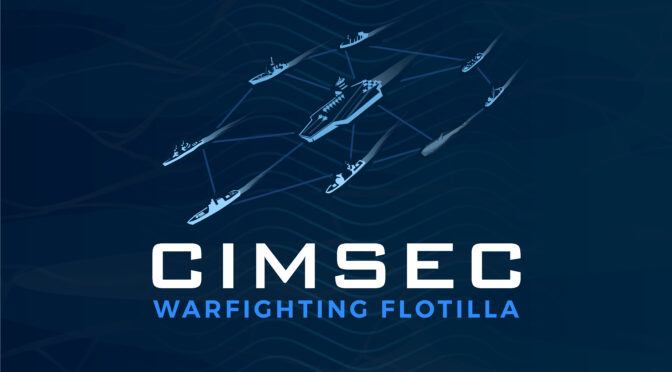By Dmitry Filipoff
This month the CIMSEC Warfighting Flotilla will be focusing on information and cyber warfare, and will hold discussions on systemic naval cyber compromise and contested-network warfighting. If you haven’t already, sign up through the form below to become a Flotilla member and receive the invites to our upcoming off-the-record February discussions. The full listings for these upcoming discussions are featured down below.
Last month the Flotilla discussed restoring the warfighting imperative for great power navies, and the role of Marine Corps forces in expeditionary anti-submarine warfare. These candid conversations illuminated useful methods for promoting a stronger warfighting focus while fostering connections between participants.
Feel free to visit the Flotilla homepage to learn more about this community, its activities, and what drives it.
Upcoming March Sessions
______________________________________
The Threat of Systemic Naval Cyber Compromise
Cyber threats are pervasive yet underappreciated. As great powers compete, they can leverage their cyber capabilities to undermine opposing militaries in peacetime, and set the stage for wartime compromise. How can navies grow their awareness of how deeply competitors have penetrated into their systems? What may be the ramifications of pre-positioned cyber capabilities being activated in wartime? Join us to discuss these questions and more as we consider the potential for systemic naval cyber compromise.
Read Ahead: “Paralyzed at the Pier: Schrödinger’s Fleet and Systemic Naval Cyber Compromise,” by Tyson Meadors
______________________________________
Network-Contested Warfighting
Modern military forces rely heavily on networks to function. But are these forces doing enough to prepare for when the network is a contested battlespace? Are militaries challenging their own network in simulated crucibles, wargaming, and other venues to ensure warfighters can operate in spite of contested networks? Join us to discuss network-contested warfighting and its implications for force employment and force development.
Read Ahead: “Fighting When the Network Dies,” by Capt. Sam Tangredi (ret.)
Completed February Sessions
______________________________________
Restoring the Warfighting Imperative
The warfighting focus of great power navies can atrophy when faced with little high-end competition for decades. Without the press of a true competitor to center the organization, unhelpful habits and mindsets can proliferate, and the skills needed to win a hard fight are eclipsed by less consequential matters. In light of renewed great power competition, how can modern navies restore the primacy of the warfighting imperative? How can navies reorient themselves to truly be about winning wars, first and foremost? Join us to discuss these questions and more as we can consider the state of the warfighting imperative and how to elevate it.
Read Ahead: “A Warfighting Imperative: Getting Back to Basics for the Navy,” by Capt. Gerard Roncolato (ret.)
______________________________________
Expeditionary Anti-Submarine Warfare
The need for more ASW capability is rising with the size of competitor ASW fleets. Existing ASW assets may be stretched thin, and could struggle to threaten adversary submarines in decisive littorals. How can the Marine Corps enhance ASW capability in contested environments? How can expeditionary advanced bases and stand-in forces contribute to the ASW mission? Join us to consider the possibilities as we discuss expeditionary ASW.
Read Ahead: “Implementing Expeditionary ASW,” by Captain Walker D. Mills, U.S. Marine Corps, Lieutenant Commanders Collin Fox, Dylan “Joose” Phillips-Levine, and Trevor Phillips-Levine, U.S. Navy
______________________________________
Dmitry Filipoff is CIMSEC’s Director of Online Content and Community Manager of the Warfighting Flotilla. Contact him at [email protected].

